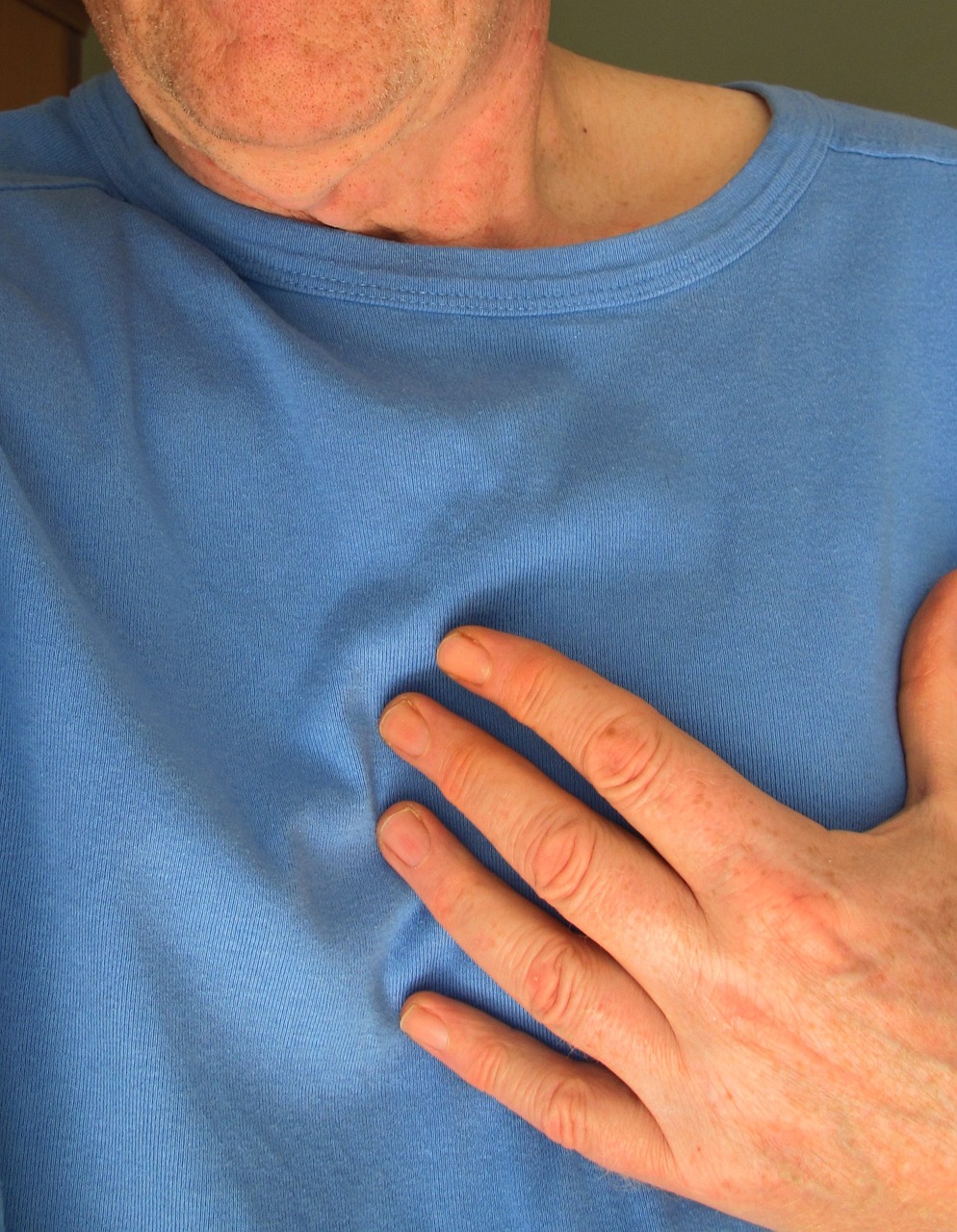What are the symptoms of Heart attack?
Chest pain or discomfort
This may feel like pressure, tightness, squeezing, or pain in the center or left side of the chest. It can last for a few minutes or come and go.
Shortness of breath
This can occur with or without chest discomfort.

Cold sweat, lightheadedness, or dizziness
These symptoms can accompany chest discomfort or occur on their own.
Upper body discomfor
Pain or discomfort may also be felt in one or both arms, the back, neck, jaw, or stomach.
Nausea, indigestion, or heartburn
Some people may experience these symptoms during a heart attack.
Watch for symptoms
Common Symptoms
It’s important to note that not everyone experiences all of these symptoms, and some people may have atypical symptoms. If you suspect a heart attack, seek emergency medical help immediately.
The prevalence of symptoms can vary among individuals experiencing a heart attack. However, in a general sense, the approximate percentage of common symptoms experienced during a heart attack may be:
- Chest pain or discomfort: Around 80% to 85%
- Upper body discomfort:40% to 45%
- Shortness of breath: About 30% to 35%
- Nausea, indigestion, or heartburn: 20% to 25%
- Cold sweat, lightheadedness, or dizziness: 10% to 15%
Emergency Symptoms
It’s important to remember that these percentages are estimates and can vary based on individual factors such as age, sex, and pre-existing health conditions. Additionally, some individuals may experience atypical symptoms or may not experience any symptoms at all, known as a silent heart attack. If you suspect a heart attack, seek immediate medical attention regardless of the presence or absence of typical symptoms.
Emergency symptoms of a heart attack that require immediate medical attention include:
- Chest pain or discomfort
- Upper body discomfort
- Shortness of breath
- Nausea, indigestion, or heartburn
- Cold sweat, lightheadedness, or dizziness
What to do if you have symptoms
If you or someone else experiences symptoms of a heart attack, it’s essential to take immediate action. Here’s what to do:
Call Emergency Services: Dial the emergency number (such as 911 in the United States) immediately. Don’t hesitate, even if you’re not entirely sure it’s a heart attack. Time is crucial in treating a heart attack, and emergency medical services can provide life-saving care on the way to the hospital.
Stay Calm and Rest: If you’re the one experiencing symptoms, try to stay calm and sit or lie down. Avoid any strenuous activity, as it can worsen the situation.
Take Aspirin (if advised): If you have aspirin on hand and it’s recommended by emergency services or your doctor, chew and swallow a regular-strength aspirin (325 milligrams). Aspirin can help prevent blood clotting, which is often a factor in heart attacks.
Follow Medical Instructions: Emergency services will provide instructions over the phone while help is on the way. Follow their guidance closely.
Wait for Emergency Personnel: Once you’ve called emergency services, wait for them to arrive. Do not attempt to drive yourself or the person experiencing symptoms to the hospital. Emergency medical personnel can provide immediate care and transport to the appropriate medical facility.
Remember, it’s better to err on the side of caution and seek medical assistance promptly. Even if symptoms turn out to be caused by something other than a heart attack, it’s crucial to have a medical evaluation to determine the underlying issue.
What you need to know
Here’s what you need to know about heart attacks:
Symptoms: Familiarize yourself with the common symptoms of a heart attack, including chest pain or discomfort, upper body discomfort, shortness of breath, nausea, cold sweat, lightheadedness, or dizziness.
Risk Factors: Understand the risk factors associated with heart attacks, which include smoking, high blood pressure, high cholesterol, diabetes, obesity, sedentary lifestyle, family history of heart disease, and age.
Immediate Action: If you or someone else experiences symptoms of a heart attack, don’t ignore them. Call emergency services immediately. Time is critical in treating a heart attack, and prompt medical attention can save lives.
Aspirin: If advised by emergency services or your doctor and if you don’t have an aspirin allergy, chew and swallow a regular-strength aspirin (325 milligrams) while waiting for emergency personnel. Aspirin can help prevent blood clotting.
Medical History: Be aware of your medical history, including any pre-existing conditions, medications you’re taking, and any previous heart-related issues.
Prevention: Take steps to reduce your risk of heart attacks by adopting a healthy lifestyle. This includes eating a balanced diet, exercising regularly, maintaining a healthy weight, avoiding smoking, limiting alcohol intake, managing stress, and regularly monitoring your blood pressure and cholesterol levels.
Emergency Plan: Have an emergency plan in place with your loved ones in case of a heart attack. Ensure they know the signs and symptoms and how to respond quickly.
Follow-Up Care: After experiencing a heart attack, it’s essential to follow up with your healthcare provider for ongoing care, medication management, and lifestyle adjustments to prevent future cardiac events.
By being informed and proactive, you can lower your risk of experiencing a heart attack and take appropriate action if one occurs.
